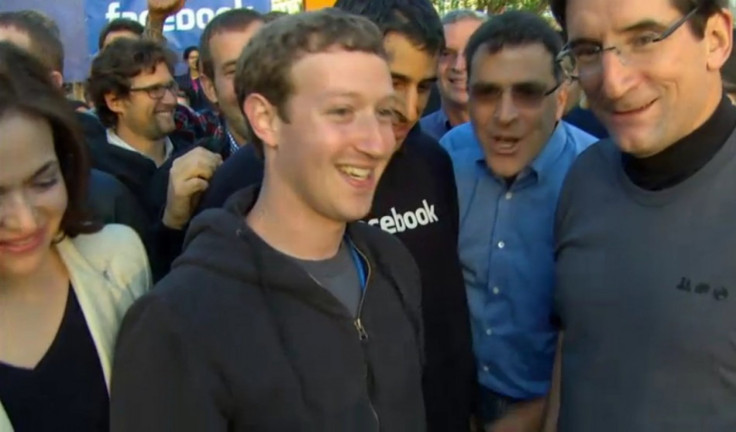Facebook IPO Jinx Falls: Palo Alto, Kayak Soar

Two months after the trading fiasco in the initial public offering of Facebook (Nasdaq: FB), the No. 1 social networking site, tech IPOs are soaring again.
Palo Alto Networks (Nasdaq: PANW) soared 31 percent Friday in their first trades, jumping to $55.15 from the just-raised IPO price of $42. The Santa Clara, Calif., security software company raised about $260 million.
Meanwhile, shares of travel booking specialist Kayak Software (Nasdaq: KYAK) jumped 28 percent in their Friday IPO, trading at $33.15. Late Thursday, they were priced at $26 as the Norwalk, Conn., company sold 3.5 million shares, raising $80.5 million.
Earlier this week, Palo Alto Networks boosted the price range of the 6.2 million shares in its IPO to between $38 and $40, from the previous $34 to $37. It raised it again to $42 on Thursday.
The upward repricings as well as the first higher trades, are signs of recovery. Investors responded well to the company's more modest capital raising, compared with the $16 billion Facebook haul, the second-largest IPO.
Facebook shares, trading at $29.32 on Friday, are down 23 percent from their May 17 IPO.
I think we'll see a lot of IPO activity in the second half, said Nick Einhorn, of Renaissance Capital, a Greenwich, Conn., specialist in IPO finance. The firm estimates as many as 68 companies may seek to raise as much as $14.4 billion in the second half.
Palo Alto Network's three principal underwriters are Morgan Stanley (NYSE: MS), Goldman Sachs (NYSE: GS) and Citigroup (NYSE: C), which all got part of the $176 million in fees from the Facebook IPO.
Besides Morgan Stanley, Kayak's other underwriters include Deutsche Bank Securities (NYSE: DB) and Piper Jaffray (NYSE: PJC).
For the first time, Kayak provided a look at its financial performance. It said it expects income from operations nearly tripled to a range between $13.4 million and $14.4 million for the quarter ended June 30. Revenue is expected to have gained about 30 percent to around $75 million.
Moreover, Kayak reported processing 304 million user queries in the second quarter, a jump around 33 percent.
CEO Daniel Hafner had been CEO of Orbitz Worldwide (NYSE: OWW), a rival. Principal investors are also top venture capital firms including General Catalyst Partners, Sequoia Capital, Accel Funds and Oak Investment Partners.
The response to Palo Alto Networks and Kayak could be a trigger for other companies waiting to go public in the technology sector.
The biggest is Workday, the human-resources software company headed by Dave Duffield, whose last company, PeopleSoft, was acquired by Oracle (Nasdaq: ORCL), the No. 1 database developer, for $10.3 billion in 2005.
Using a provision of the new Jumpstart Our Business Startups (JOBS) Act signed by President Barack Obama, Workday has filed confidential data with the U.S. Securities and Exchange Commission, a Reuters report said. Unlike other IPOs, it won't have to disclose financial results to the public until three weeks before its roadshow starts.
Workday's bankers are Morgan Stanley, Goldman Sachs and JPMorgan Chase (NYSE: JPM), who were the principal managers of the Facebook deal.
Investors in Workday, of Pleasanton, Calif., include Jeff Bezos, CEO of Amazon.com Inc. (Nasdaq: AMZN), the No. 1 e-retailer; New Enterprise Associates, Greylock Partners and T. Rowe Price (Nasdaq: TROW), the Baltimore mutual funds manager that also was an early Facebook investor.
CEO Daniel Hafner had been CEO of Orbitz Worldwide (NYSE: OWW), a rival. Principal investors are also top venture capital firms including General Catalyst Partners, Sequoia Capital, Accel Funds and Oak Investment Partners.
© Copyright IBTimes 2025. All rights reserved.






















